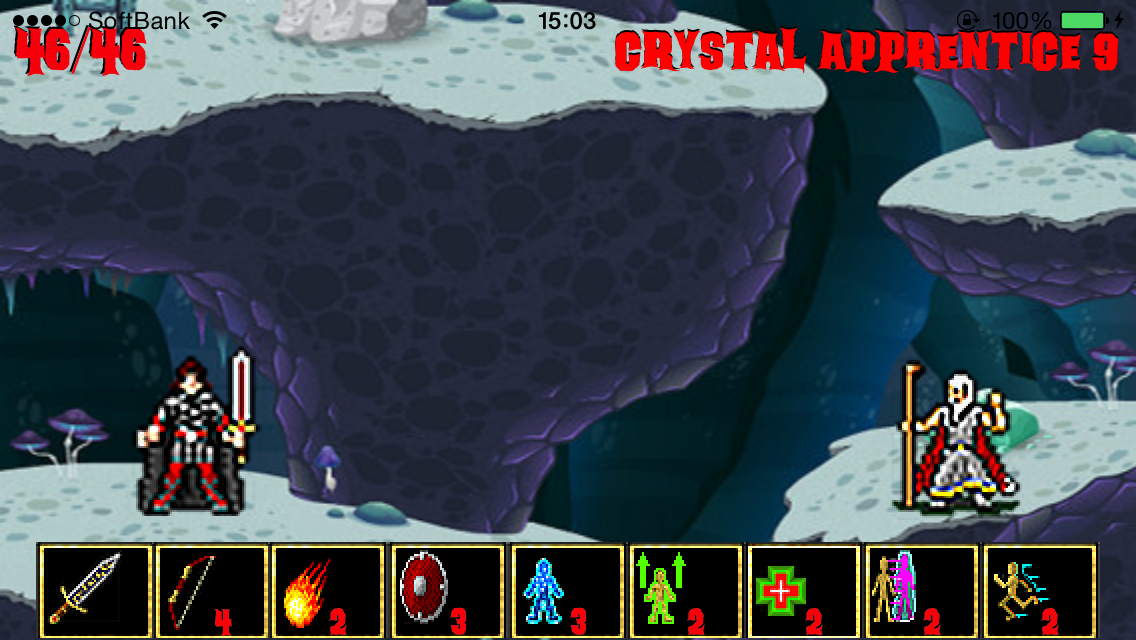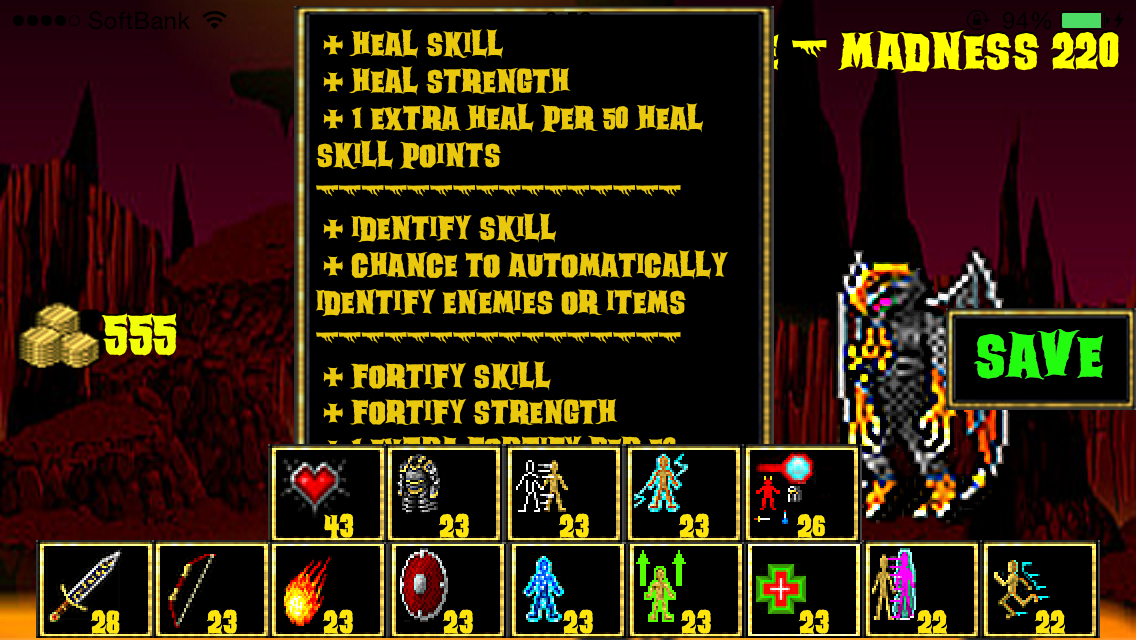![]() There are lots of different reasons that a person might enjoy an RPG, from the story to the battle system to exploration, but I think the one aspect that speaks to just about everyone is seeing numbers go up. It’s such an appealing element of RPGs that it’s been wholesale lifted by other genres over the last several years to massive success. Some games have even gone as far as to ditch everything else, allowing you to mindlessly tap away to see your numbers go up. Templar Infinite Crusade ($0.99) doesn’t go quite that far, but it’s certainly in the neighborhood. It looks like the dog’s breakfast, it’s so random that you’ll need as much luck as strategy to survive, and yet, there’s a certain basic appeal to the game that might get its hooks into you if you give it a shot.
There are lots of different reasons that a person might enjoy an RPG, from the story to the battle system to exploration, but I think the one aspect that speaks to just about everyone is seeing numbers go up. It’s such an appealing element of RPGs that it’s been wholesale lifted by other genres over the last several years to massive success. Some games have even gone as far as to ditch everything else, allowing you to mindlessly tap away to see your numbers go up. Templar Infinite Crusade ($0.99) doesn’t go quite that far, but it’s certainly in the neighborhood. It looks like the dog’s breakfast, it’s so random that you’ll need as much luck as strategy to survive, and yet, there’s a certain basic appeal to the game that might get its hooks into you if you give it a shot.
You play as the titular Templar, a knight on a quest to kill everything, apparently. Well, actually, you’re on a crusade to take down some elder monsters or something like that, but it doesn’t matter, since your quest never really ends. The game is basically a series of turn-based battles that happen as your warrior automatically moves from screen to screen. Each victory will put some gold in your pockets, and you’ll occasionally come across items that will buff your abilities. Eventually, you’ll stretch yourself too thin, run into a monster you can’t handle, or push your luck too far, and your crusade will come to an end, stripping you of any items you may have found. All is not lost, however, as at the end of each game, you can invest your accumulated gold pieces in permanent stat and ability boosts, ensuring that you’ll start off your next crusade a little bit stronger. The numerous random elements and the presence of perma-death lend the game a roguelike vibe, but the setbacks that result from those things are minor in the face of your gains.

Your character has a decent repertoire of abilities to choose from, but apart from your basic attack, uses are limited on any given crusade. Leveling up abilities eventually allows you to use them more frequently. That type of level-up is fairly rare, though, with more typical levels simply strengthening the skill in question. It’s kind of a tough call, because the abilities are awfully strong, dealing heavy damage and often negating damage altogether, but having so few uses of each means you quickly run out of options and have to resort to tapping attack until you finally die. It’s kind of frustrating because the massive list of enemies has a fair bit of variety in how each is best handled, but you generally can’t take advantage of those strategies since you run out of skills so quickly. Perhaps I’m overthinking it, but it feels like differentiating all these foes is a wasted effort, since the wise player is going to hold on to their skills until they come across a boss anyway.
Battles go so quickly, though, it’s hard to care too much. Fights against regular enemies last seconds, and entire crusades rarely go more than a minute or two until you really power yourself up. It makes for an odd yet compelling experience, like an endless runner template stapled to an RPG battle system. It’s really easy to fire up, play, and put away, with the comfort of knowing that you’ve made some kind of overall progress in that brief span of time. I also think it’s pretty clever that you invest your gold and get your improvements after a crusade is finished. Who wouldn’t want to have another go to see how your new abilities stack up? While I can’t see myself sitting down and putting a serious amount of time in a single play session, Templar Infinite Crusade certainly has the chops to satisfy you for brief bursts of several games in a row.

The core of the game works, and fairly well, at that. It’s a good thing, because almost everything else about the game is extremely rough. The graphics are a messy hodge-podge of mismatched assets, many of which are far too low-resolution for the size they occupy on the screen. There’s almost no animation to speak of, the system clock and carrier information awkwardly remain on-screen during play, and the game also suffers from rare crashes. At the very least, the soundtrack is pretty good, offering up several nice tunes that cycle as you play. There’s also support for Game Center leaderboards, many of them added in a post-release update that has added considerably to the game’s overall enjoyment. I should also mention the game has no IAP at all, in spite of how easily it could have been added in to mess with the game’s balance.
While the game suffers from an extremely weak visual presentation, the gameplay scratches a similar itch as the recently popular clicker genre of games while still requiring a bit of meaningful interaction those games tend to lack. If you’re looking for something to fill some time here and there, and you can get past the rough appearance, you’ll probably enjoy Templar Infinite Crusade well enough. I feel like the game needs a bit more work to reach its true potential, but the developer seems motivated to keep working on it, so it might get there at some point. In the meantime, it’s still pretty fun in its own right.